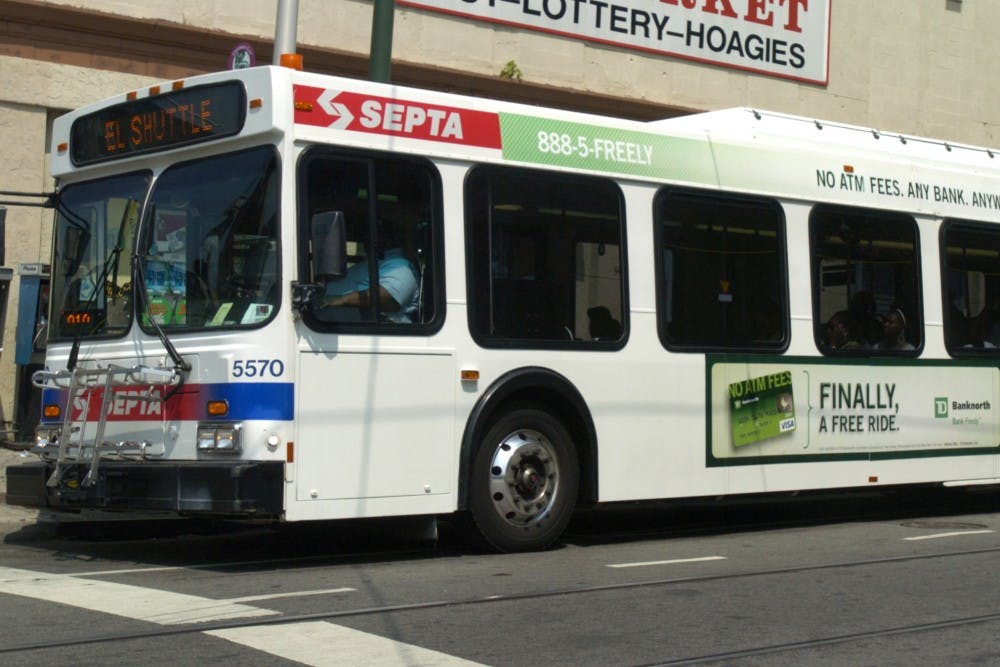Throughout the last month of the spring semester, anti-Muslim advertisements were carried throughout Philadelphia’s neighborhoods on dozens of SEPTA buses. The message they offered, “Islamic Jew Hatred: It’s in the Quran” is a false one, tailored to incite prejudice and division among viewers and the community. A diverse array of political, religious and civic leaders in Philadelphia rallied against the advertisements in the weeks prior to their appearance, unfortunately to no avail. A federal court ultimately backed the ads, citing the constitutional free expression rights of American Freedom Defense Initiative, the private political extremist organization that sponsored them.
Thirty-two leaders representing all of Philadelphia’s major religious communities issued a statement encapsulating the response of the city’s faith groups to the unfounded message of these advertisements. “We will continue to reject attempts to stereotype any tradition or community,” they resolved. “Working as spiritual with the members of diverse faith and ethnic communities within Philadelphia, our challenge and our hope is to strengthen the ties among all communities to improve the quality of life.”
The occurrence of such a glaring act of hatred within our community unfortunately proves that no space is entirely immune to hateful speech — even the side of a SEPTA bus. The response of Programs in Religion, Interfaith and Spirituality Matters and the religious community at Penn was, and continues to be, one that promotes interreligious understanding as a path to combating hatred. The AFDI’s advertisements can only succeeded in creating religious intolerance and inciting violence if we fail to come together as a community and stand strong against dangerous stereotypes.
Throughout the months of April and May, PRISM partnered with the Interfaith Center of Greater Philadelphia in a response campaign, #DareToUnderstand. We asked Penn students of all faith backgrounds to post photos on social media in response to the SEPTA ad campaign. The call to action was simple: Take a picture of yourself or with friends holding a sign explaining why you stand in opposition to the AFDI’s message or why you believe interreligious unity is important. You can write about a personal interreligious experience that underscored your shared humanity, a meaningful relationship you share with someone outside your faith or simply an expression of solidarity.
As a response to the AFDI advertisements and to religious intolerance as a whole, #DareToUnderstand aims to deconstruct stereotypes in a lasting collection of stories. We hope that it will continue to provide a forum for people of all faith backgrounds to participate in the discussion on religious identity and understanding.
Moving forward, we wish to transform #DareToUndestand into more than just a hashtag. We invite and encourage all members of the Penn community to break out of religious and cultural circles to explore the huge breadth of interreligious diversity that our campus has to offer. To date, Penn has a strong legacy of interfaith programming. Last year, the university was honored as one of three finalists in the President’s Interfaith and Community Service Campus Challenge in Washington, D.C. Penn was the only non-religious institution selected for this honor. Recently, interfaith dialogue initiatives including Abraham’s Tent, Penn Jews and Muslims (JAM), Moral Voices Fellowship, the iBelieve interfaith seminar, Religious Diversity Week and Interfaith Service Weekend have laid the groundwork for lasting, all inclusive forums for interreligious engagement at Penn. The Faith Fund, in conjunction with the Office of the Chaplain works to provide support for a range of diverse and innovative interfaith discussions and programs. PRISM hopes that these programs and opportunities will foster a future of greater understanding by promoting unity in diversity.
As a diverse campus community, we wish to reflect on our response to the SEPTA advertisements as an example for the future and for Penn. When such glaring statements of hatred strike so close to home, how should we react? We must continue to condemn inflammatory messages that serve to divide, stigmatize and incite prejudice while working to break down barriers between our own communities. Through discourse and meaningful engagement across faith boundaries may be the less convenient path, it is the only path to unity.
SAM MURRAY is a rising College junior and co-chair of PRISM from New Canaan, CT. His email address is pennprism@gmail.com.



